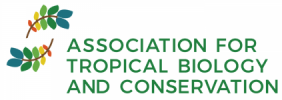Originally proposed by the DEI Committee in July 2017 during the ATBC2017 (Kutching, Malaysia) and subsequently amended by the DEI Committee in June 2020.
As ATBC members, the nature of our workplaces is in close association with people from different cultures, regions, religions, ethnicities, and world views (hereafter referred to as social groups). As an international society, we have a commitment to diversity, equity, and inclusion, as well as capacity building in a way that promotes professional development, shared governance and decision-making, and welfare of the ATBC community. The ATBC hereby resolves:
- To collaborate and have an equal partnership with different stakeholders (e.g., in-country scientists and institutions, local and/or indigenous communities, or any party relevant to research and conservation activities), taking into account their expertise and perspectives of the ecosystem and socio-cultural and political contexts in which they work and live.
- To consult and actively engage with local collaborators from different social groups when establishing projects and experiments, so they are key partners in the priority setting and decision making related to the design and implementation of research throughout the process.
- To respect national sovereignty and regulations, as well as local Institutional regulations and follow them, regarding research and export permits of biological material.
- To self-inform on local costumes and traditions and respect them while working with local members of different social groups and follow established standards such as free, prior and informed consent (FPIC) when engaging people, particularly indigenous communities.
- To secure long-term participation of local collaborators in future research, publications, and activities that directly relate to their projects, experiments, and ideas, while facilitating their inclusion in collaborative networks.
- To train local students and assistants in technologies or skills pertaining to research and conservation, and to provide access to information for furthering training opportunities.
- To treat all local collaborators with respect and to not discriminate based on gender, nationality, ethnicity, religion, sexual orientation, age, or ability.
